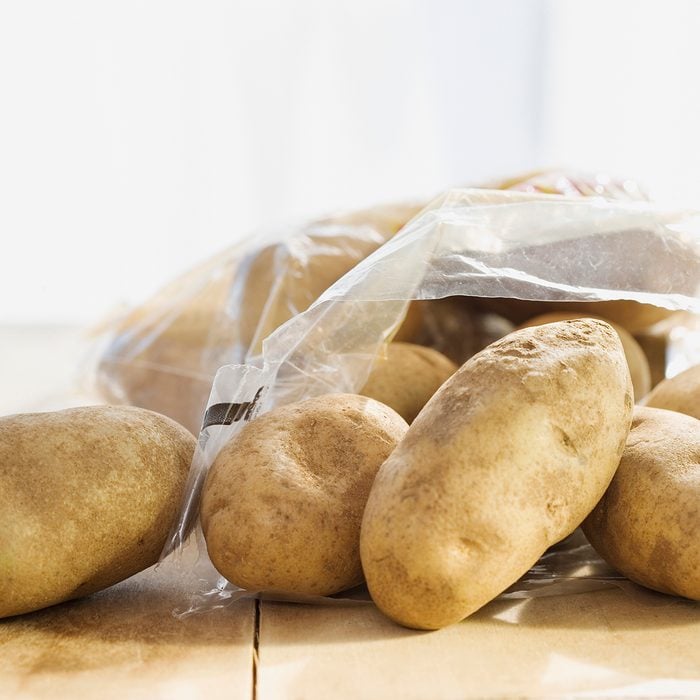
Fresh Herbs
Green, leafy goodies like parsley, cilantro and basil tend to go bad quickly. To extend their freshness, trim off the bottoms of the stems, place them in a glass of water and drape a plastic bag or plastic wrap over the tops. With the exception of basil (which should be left on the counter), you can keep fresh herbs this way in the fridge and they’ll stay fresh for 2 to 3 weeks!

Berries
Berries are also quick to take a turn for the worse. Mold seems to pop up overnight. Yuck! To keep them fresher longer, make sure they’re completely dry and store them, unwashed, in the crisper drawer of the refrigerator in a container lined with paper towels. This will keep the moisture away and keep them tasty for 5 to 7 days. Don’t think you can use them in time? Here’s how to freeze berries and other fresh fruits.

Bread
Just baked a loaf of homemade bread? You have two good options for keeping bread fresh, depending on the type: store a crusty loaf unwrapped at room temperature, then once it’s sliced, place it in a closed paper bag. For a soft-crust loaf, keep it in an airtight plastic bag and stored at room temperature. Bread is one product that does not thrive in the refrigerator!

Bananas
Bananas can turn brown and speckled in the blink of an eye, and that’s good news if you’re planning to make banana pudding or banana bread! If those aren’t on your to-do list, pull them apart and wrap the stems tightly in plastic wrap. This helps reduce the amount of ethylene gas emitted, which slows the ripening process.

Mushrooms
Nobody likes slimy mushrooms, so unless they’re prepackaged (in which case, leave them alone), be sure to store them, unwashed, in a paper bag. The paper allows air to circulate and will also absorb any moisture that forms. This will ultimately slow down their decay and keep them fresh for up to one week. Try these savory mushroom recipes to use ’em up quick.

Cheese
Though cheese isn’t as quick to spoil as fresh produce, it can still become a hotbed for mold. To keep it free from fungus for as long as possible, wrap it in wax or parchment paper, then put it in a partially sealed plastic bag. To keep the outer layer from getting hard and crusty, add a thin layer of butter or oil to the cut side before storing. Psst! Try our cheesiest recipes ever.

Celery
Is anything as unappealing as rubbery celery? To keep your stalks crisp, separate, wash and dry them, then wrap them tightly in aluminum foil. Storing them this way will keep the air out but the moisture in, and that pesky ethylene gas will still be able to escape (plastic bags just trap it in).

Leafy Greens
Leafy greens are notorious for wilting quickly. To combat this and prolong their freshness, line your crisper drawer with paper towels or store the leaves in a zipper bag with paper towels. Moisture is what causes the leaves to lose their crisp texture, so be sure to replace the towels as needed.

Tomatoes
There has been a bit of debate about how best to store tomatoes. Perfectly ripe tomatoes should be kept on the counter away from direct sunlight, not touching one another, with the stem side down. Tomatoes that are super ripe should be stored in the refrigerator (but let them come to room temperature before eating them for the best flavor).

Milk
Though the shelf-life of milk is fairly lengthy, there is still something you can do to keep it fresher longer. Simply add a pinch of salt to the jug or carton, and this will allow you to enjoy your milk for up to two weeks past its expiration date!

Potatoes
It’s not uncommon to see buds coming out of your potatoes within a week of buying them. If you store them properly in a cool, dry, well-ventilated place, away from onions (which release gases that hasten potato spoilage), they’ll go longer before sprouting. Be sure to put them in a cardboard box, paper bag, mesh bag or basket so they can breathe. Find out how to store root veggies.
